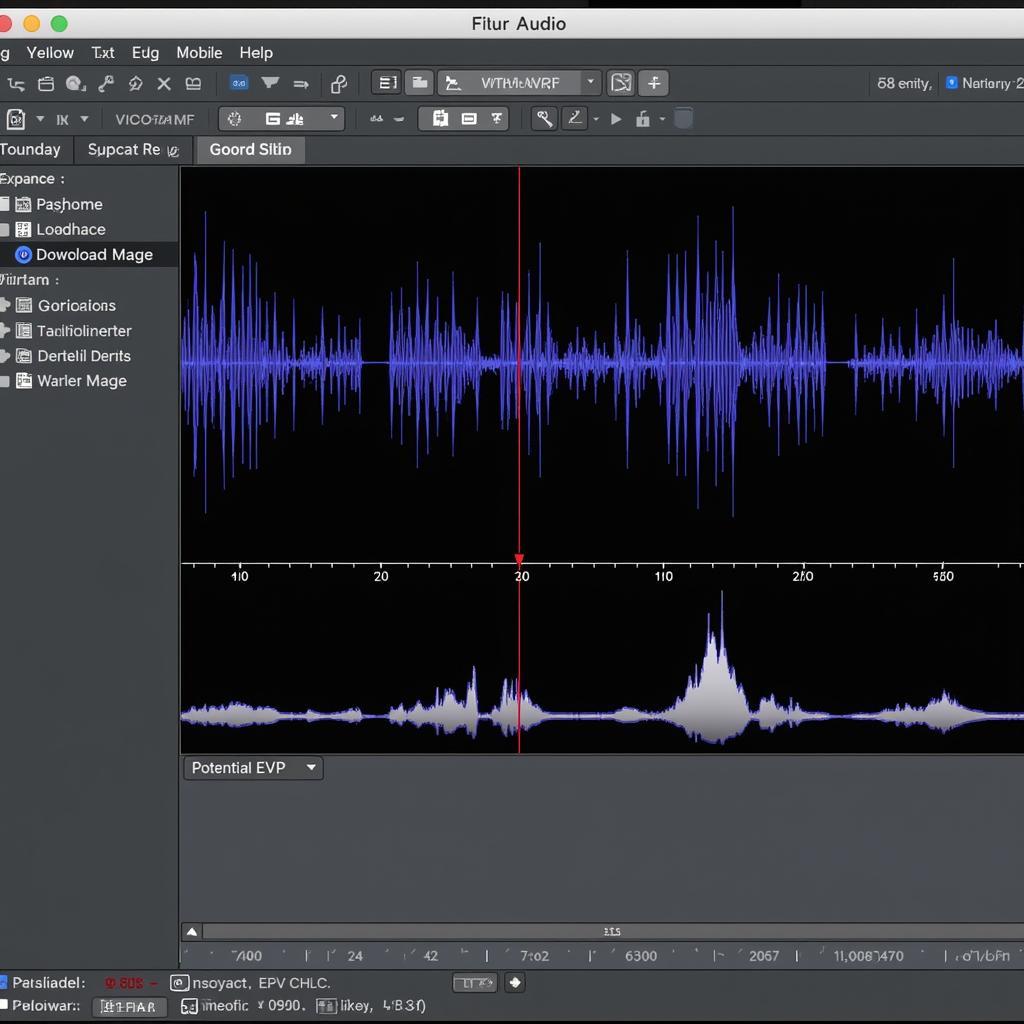Ecoa Research, a fascinating field within the realm of paranormal investigation, delves into the study of unexplained acoustic phenomena. These mysterious sounds, often described as disembodied voices or whispers, have captivated researchers and enthusiasts alike for decades. But what exactly is ecoa research, and how do investigators attempt to capture and analyze these elusive auditory anomalies? Let’s explore the intriguing world of ecoa research and shed light on the methods, theories, and potential explanations surrounding this captivating phenomenon.
What is Ecoa Research?
Ecoa research focuses specifically on the investigation and analysis of Electronic Voice Phenomena (EVP). These phenomena, often captured using audio recording devices, manifest as sounds that seem to originate from unknown sources or entities. Researchers believe that EVPs could potentially offer insights into the existence of spirits, parallel dimensions, or other unexplained forces.
The Tools and Techniques of Ecoa Research
Ecoa researchers employ a range of specialized equipment and techniques to capture and analyze EVPs. Some of the most common tools include:
-
Digital Audio Recorders: High-quality digital recorders with sensitive microphones are essential for capturing subtle sounds that might go unnoticed by the human ear.
-
Audio Editing Software: Sophisticated software allows researchers to amplify, filter, and analyze recordings to isolate potential EVPs from background noise.
-
Electromagnetic Field (EMF) Meters: Some investigators use EMF meters to detect fluctuations in electromagnetic fields, which are thought to be associated with paranormal activity.
-
White Noise Generators: White noise generators create a constant, neutral sound that can help to mask background noise and potentially make EVPs more discernible.
Theories and Explanations
Theories surrounding the origins of EVPs are diverse and often debated. Some of the most prevalent explanations include:
-
Spirit Communication: Many believe that EVPs represent attempts by spirits or entities from other realms to communicate with the living.
-
Psychokinesis: This theory suggests that EVPs are produced through unconscious psychic abilities, where individuals unknowingly influence electronic devices.
-
Environmental Factors: Skeptics often attribute EVPs to environmental factors such as radio interference, electrical anomalies, or natural sounds misinterpreted as paranormal.
-
Pareidolia: The human brain’s tendency to perceive patterns in random data, such as hearing words in random noise, could also contribute to the perception of EVPs.
Analyzing EVPs: A Critical Approach
Ecoa research relies on a combination of objective analysis and subjective interpretation. Researchers must carefully examine recordings for any potential anomalies while considering all possible explanations.
 Analyzing Audio Recordings for EVPs
Analyzing Audio Recordings for EVPs
However, it’s crucial to maintain a critical and skeptical approach. Confirmation bias, where individuals tend to favor information that confirms their existing beliefs, can influence interpretations. Therefore, ecoa researchers often collaborate with other investigators to obtain unbiased perspectives and ensure the validity of their findings.
The Importance of Ethical Considerations
Ecoa research, like any investigation involving potentially sensitive phenomena, requires ethical conduct. Researchers should always obtain permission before conducting investigations in private locations and treat all findings with respect and sensitivity. Sensationalizing or exploiting EVPs for personal gain is unethical and undermines the credibility of the field.
Ecoa Research: An Ongoing Exploration
Ecoa research continues to captivate and intrigue those drawn to the mysteries of the unknown. While definitive answers regarding the origins and nature of EVPs remain elusive, ongoing research and technological advancements offer exciting possibilities for deepening our understanding of this enigmatic phenomenon. As we delve further into the realm of ecoa research, we may uncover insights that challenge our perceptions and shed light on the hidden dimensions of our reality.
Frequently Asked Questions about Ecoa Research
1. Can anyone conduct ecoa research?
While specialized equipment can enhance investigations, anyone with an interest in EVPs can attempt to capture and analyze these sounds. However, it’s important to approach ecoa research with respect, caution, and an open mind.
2. Are there any proven methods for increasing the likelihood of capturing EVPs?
While there are no guaranteed methods, some researchers believe that creating a calm and respectful environment, asking clear questions, and utilizing white noise generators may enhance the chances of capturing EVPs.
3. What are some common characteristics of EVPs?
EVPs often manifest as whispers, disembodied voices, or unusual sounds that are difficult to discern with the naked ear. They may be brief, fleeting, and embedded in background noise, requiring careful analysis.
4. Is ecoa research dangerous?
Ecoa research itself is generally not considered dangerous. However, it’s essential to exercise caution and common sense when investigating potentially hazardous locations. Always prioritize safety and obtain permission before entering private property.
5. Where can I find reputable resources for learning more about ecoa research?
Numerous online resources, books, and organizations dedicated to paranormal research offer valuable information about ecoa research. Seek out sources that emphasize objective analysis, ethical conduct, and critical thinking.
Need Assistance with Ecoa Research?
Our team of experienced paranormal investigators at Paranormal Research is here to provide guidance and support. Contact us at 0904826292, email us at [email protected], or visit our office located at No. 31, Alley 142/7, P. Phú Viên, Bồ Đề, Long Biên, Hà Nội, Việt Nam. We’re available 24/7 to assist you with your ecoa research endeavors.